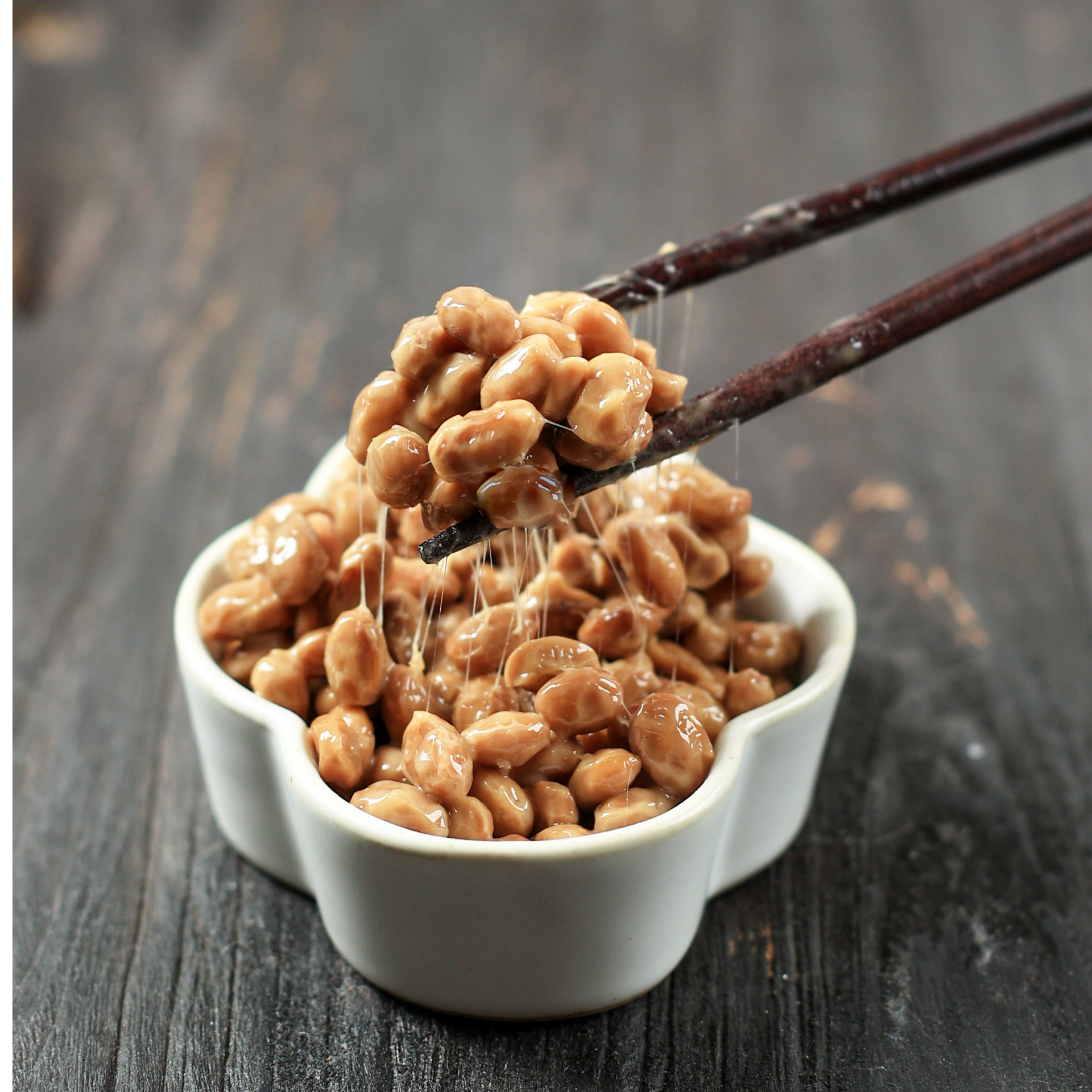
Introduction
A f correlation has emerged from Japanese health data that may have implications for bone health. A 2020 research review published in the journal Nutrients highlights a geographic pattern within Japan: regions with higher consumption of natto (a traditional fermented soybean food) show lower rates of hip fractures among elderly women.

The Research
The paper, “MK-7 and Its Effects on Bone Quality and Strength” by Sato et al., presents visual evidence in the form of two maps of Japan. One map shows regional natto consumption patterns, while the other displays hip fracture incidence. The visual correlation between high natto consumption areas (primarily in Eastern Japan, including cities like Tokyo) and lower hip fracture rates is striking when compared to areas with lower natto consumption (primarily Western Japan, including cities like Osaka).
The researchers attribute this protective effect to a specific form of vitamin K2 called menaquinone-7 (MK-7), which is abundantly present in natto. Unlike other soybean products that showed no significant correlation with reduced fracture risk, natto’s unique fermentation process creates high levels of MK-7.
Why is MK-7 important for bone health? While calcium is necessary for bone strength, it requires proper direction to ensure it builds up in bones rather than in arteries and soft tissues. Vitamin K2-MK7 plays a crucial role in this calcium management by activating specific proteins that bind calcium to the bone matrix.
Interestingly, the research suggests that MK-7’s bone benefits go beyond simply increasing bone mineral density (BMD). The paper indicates that MK-7 also improves bone quality and strength by affecting collagen production and proper mineralization.
Implications for Bone Health
The current recommended daily intake (RDI) of vitamin K in most countries is based solely on blood coagulation needs (65-120 μg/day for adults). However, this research suggests that higher levels may be necessary for optimal bone health, particularly of vitamin K2 in the form of MK-7.
According to the paper, MK-7 is effective at much lower doses than other forms of vitamin K due to its higher bioavailability and longer half-life in the body. Supplemental intake of MK-7 at doses around the current RDI (90–180 μg/day) has been shown to promote proper bone protein carboxylation, while other forms of vitamin K require significantly higher doses to achieve similar effects.
